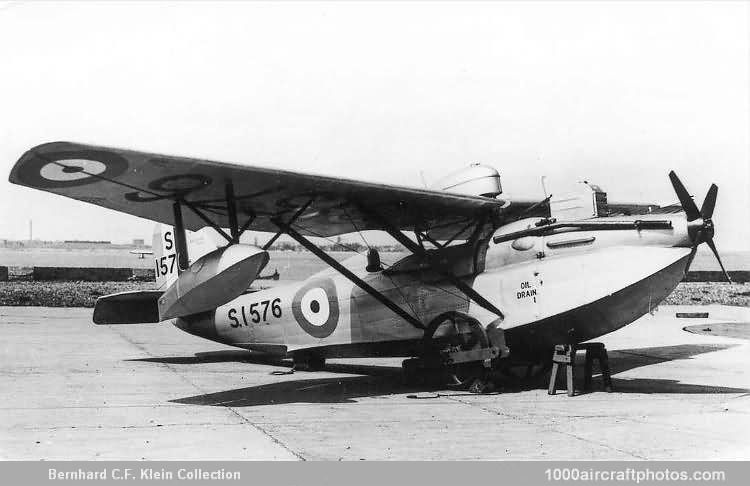02/28/2014. Remarks by Johan Visschedijk: "Between WW I and the early 1930s the firm of George Parnall and Co. of Bristol were prolific builders of small aircraft for both service and civil use, all of which had names prefixed by the letter 'P' and were designed by Harold Bolas. Most of these machines are well documented, but the Prawn falls into the category of those aircraft on the Secret List which vanished from the scene for various reasons before the ban on information was lifted, and therefore little data can be traced.
The Prawn, completed in 1930, was a single-seater military flying boat built for the Air Ministry. The smallest British machine of the type, smaller than even the earlier tiny Short Cockle, the Prawn had a parasol, strut-braced monoplane wing, with an all-metal hull and wing tip floats, the mainplane and tail unit being of wooden construction and fabric covered. The pilot's cockpit lay aft of the mainplane, and was provided with a streamlined headrest.
The most interesting feature of the Prawn, however, was its unusual power unit arrangement, the engine being a 65 hp liquid-cooled Ricardo-Burt, actually a spare engine from the R.101 airship. Fitted with a diminutive four-bladed propeller of 4 ft 3 in (1.30 m) diameter, the power unit was encased in a metal-cowled nacelle forming a self-contained 'power egg' which was pivot-mounted to a recess in the hull top.
For take off, the whole nacelle could be mechanically canted upwards to a maximum of 22° to dear the propeller from spray, and when in flight, lowered to the normal position with the thrust line at the top of the bows. A large radiator was mounted on the nacelle, and flexible connections carried engine controls and the fuel supply between hull and nacelle, the fuel tank being positioned externally above the mainplane center section.
Serialed S1576, the Prawn was at Felixstowe for testing in mid-1930, but its performance details and eventual fate are not known. Reportedly the Prawn never flew because its engine overheated and seized up while taxiing, and no spares were available."
